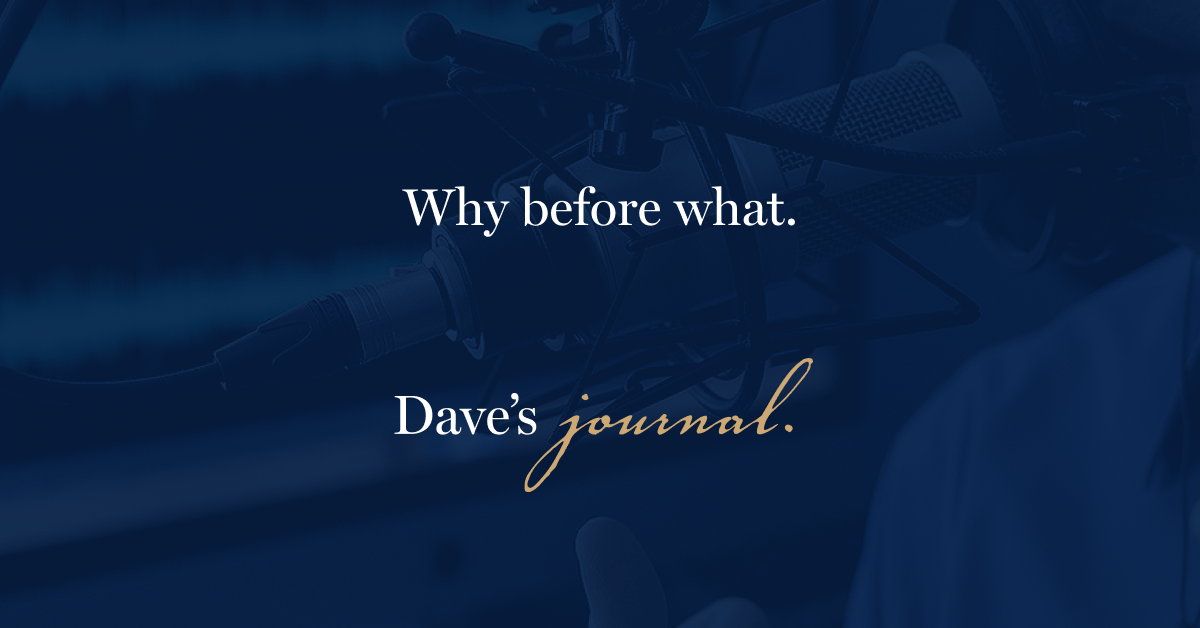A decade ago, I was instructing a communication and human relations course for Dale Carnegie. We were about halfway through the multi-week program when a participant asked a question of me in front of the class:
What do you do when your wife claims that you’re just being nice to her because you’re taking this course?
When the laugher stopped, I offered this:
If you stop being nice to her when this course is over, then she was right.
I appreciated the bravery of what that individual asked all those years ago, because he captured a reality that so many of us run into when trying to become better leaders, employees, parents, and spouses.
When we change our behavior, even for the better, people are naturally suspect. It’s the same kind of feeling that parents get when they see their children are suddenly sitting quietly in a chair, grinning at them.
Why do you look so suspicious?
…is the question our kids often get from me.
It’s hard to fault others when they have the same reaction to a behavior we’ve just changed. One of our Academy members reminded me of that this week, when she asked a colleague:
Will this “improvement” you're planning catch your team off guard?
In the absence of other data, it’s human nature for us to view sudden behavior change with some suspicion. However, you can reduce that a bit up front — and almost entirely, in the long-run.
Start by telling people what you are doing. If you have rarely given constructive feedback but now recognize that you should do it more to develop people, tell them what you're changing. I often use this mantra:
Why before what.
Point out why you’re doing something, followed by what that something is. Here’s how it might sound:
I’m working on getting better at developing people when I see opportunities for learning. You’ll hear me giving more real-time feedback so I can do this for you, too.
That won't change the discomfort you both have the first few times you do this, but it doesn’t lend itself to as much suspicion if you tell people in advance.
But, the bigger question is this:
Do you keep going?
It’s not that hard to change behavior for a single interaction. In fact, we all do this at least some of the time, in order to precipitate an outcome, which may or not not be aligned with the other person’s interests.
That’s why behavior change breeds suspicion, and why we’ve all leaned to be cautious when it comes as a surprise from someone else.
If, however, you keep going, then eventually you are not just taking an action. You have changed who you are.
When you decide to make a behavior change for the better, expect people to be suspicious. Assuming the new behavior is a positive change for everyone, the fact that people noticed something changed is actually an early indicator that you’re moving forward.
Then, keep going.
Don’t simply act to achieve an immediate outcome. Take on a new identity and decide before you start to keep going when it doesn’t yet feel like you.
When you demonstrate that you are willing to keep going on something worth doing, you not only make things better for others, you become the person you want to be.
Dave's Journal is available by audio on Apple Podcasts, Google Podcasts, Overcast, and Stitcher.





